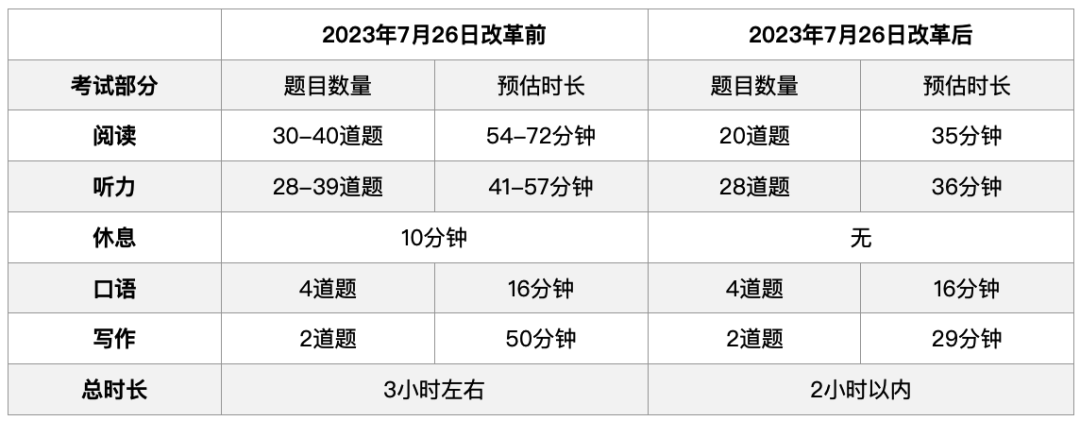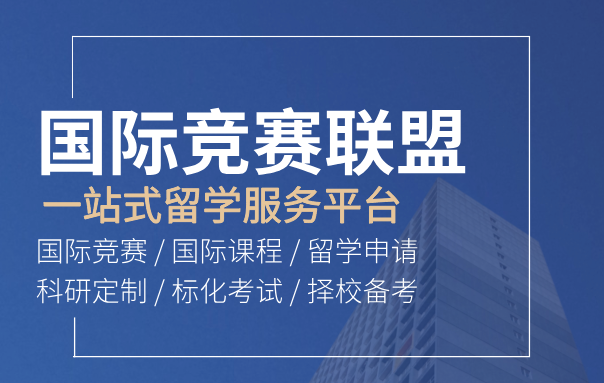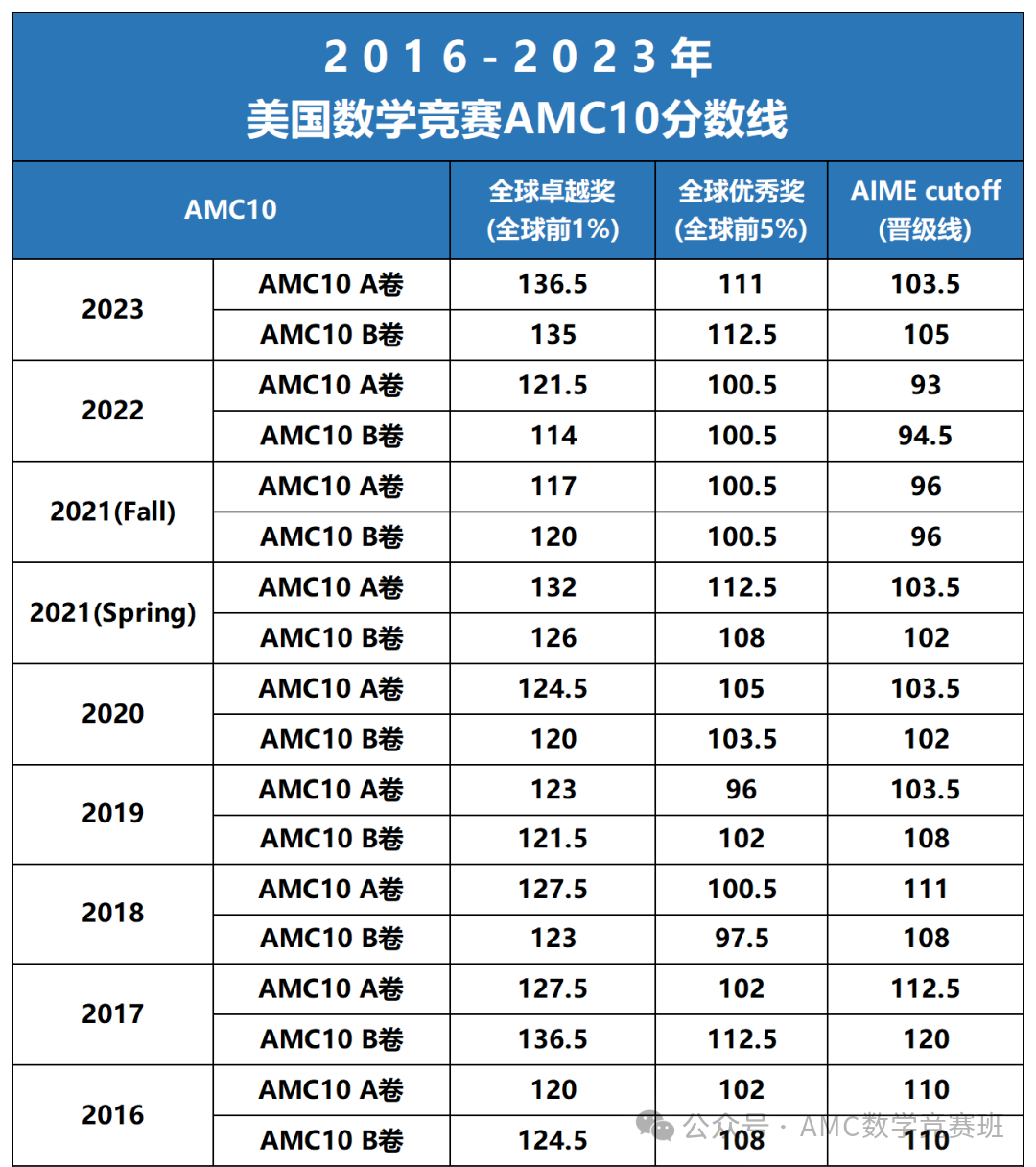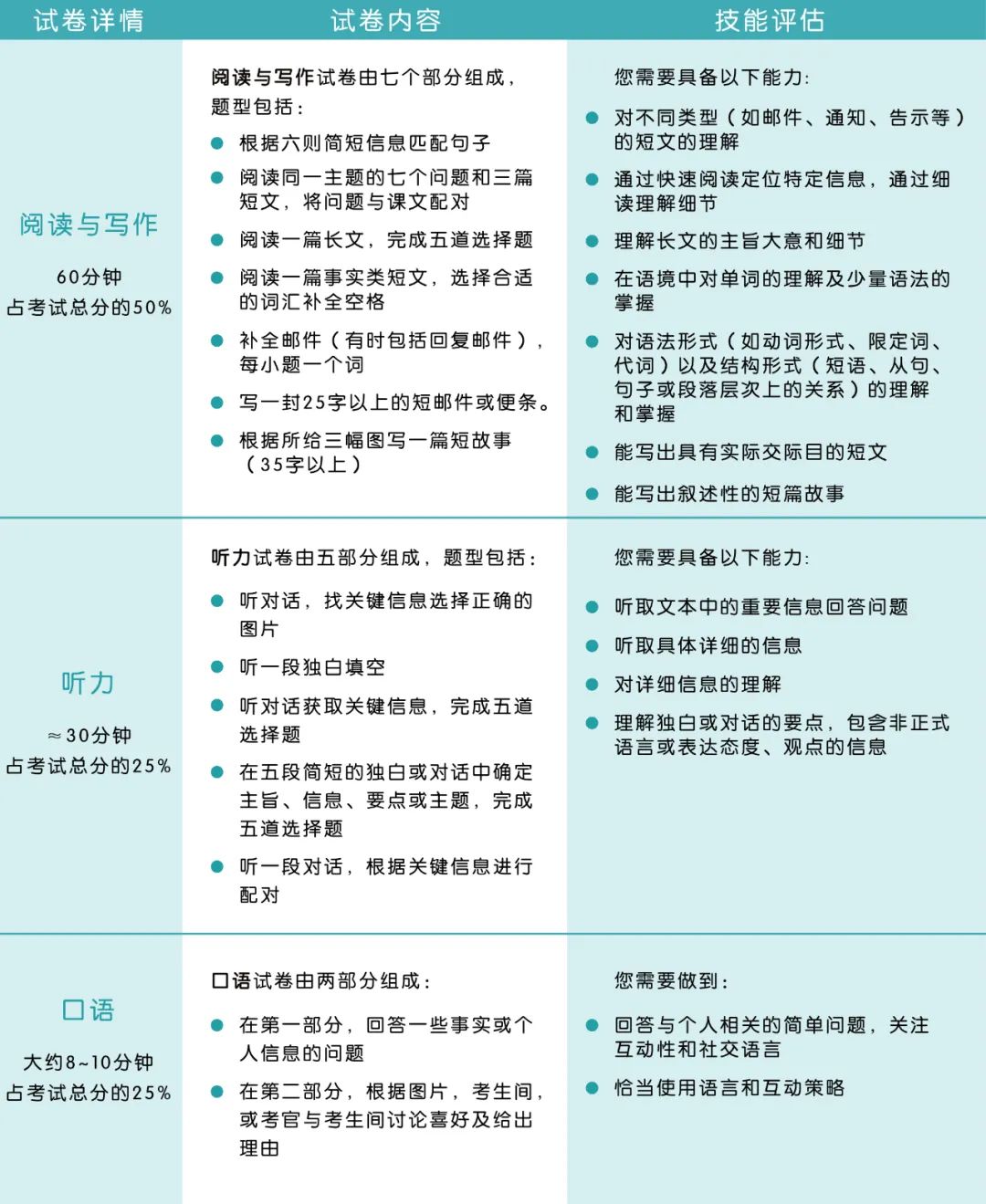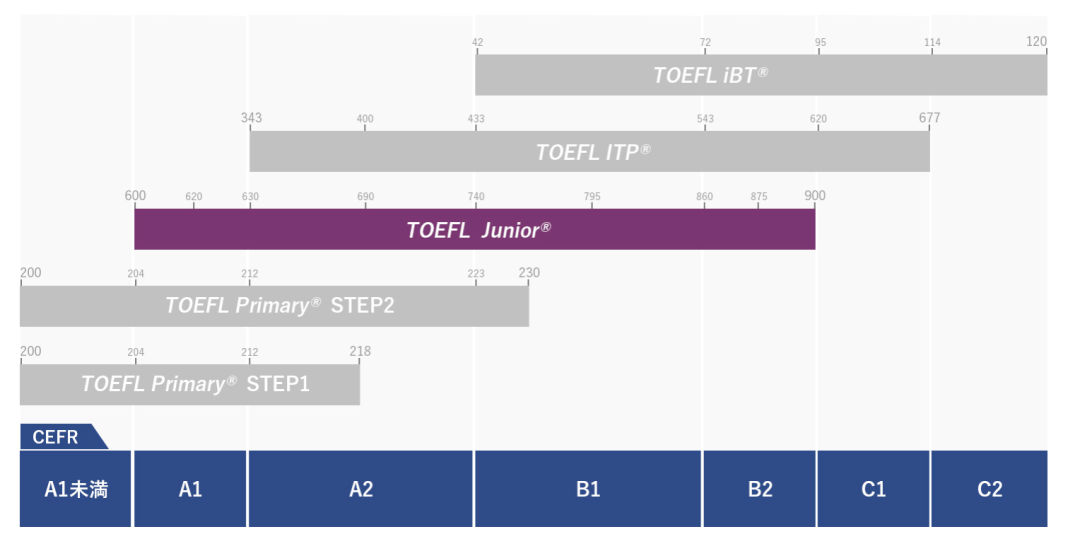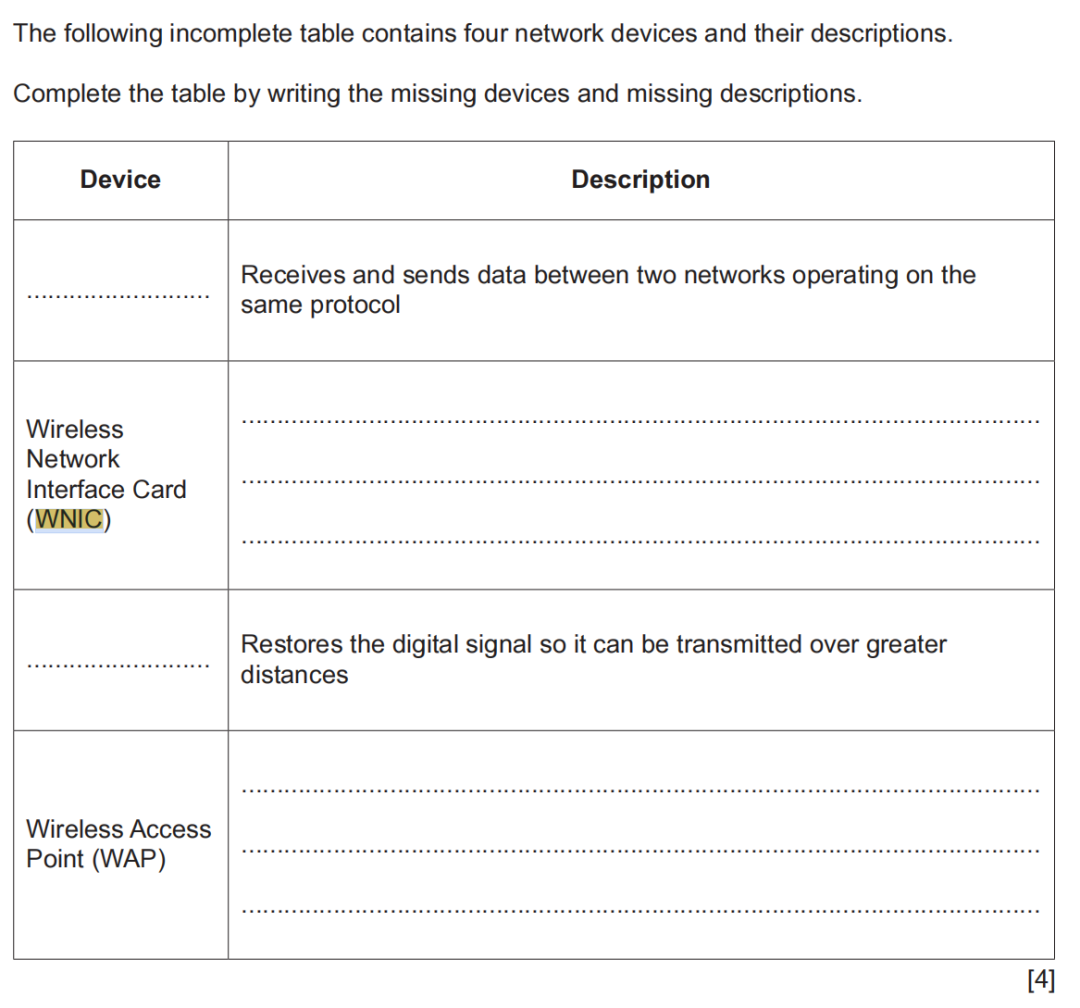4月11日,ETS在北京正式宣布从2023年7月26日起,托福考试将全面升级。考试时长由3小时缩短为2小时以内,阅读改为两篇文章,取消加试题,取消现在的独立写作,改为简短的“学术讨论写作"(Writing for an Academic Discussion)。
今天我们重点分析写作部分的改革。
首先,我们不要对英文中的“academic”(学术)产生误解。如上文内容所述,独立写作改为简短的“学术讨论写作"(Writing for an Academic Discussion),但是,所谓的学术,并不是指我们在写作过程中,语言表达要上升到某种“学术”状态,类似于论文发表水准。恰恰相反,我们应该呈现的是discussion的语言表达。也就是说,“学术讨论写作”其实没那么学术。改革后的写作要求的本质是一个课堂讨论,我们的重点应该放到discussion。至于“学术”,其实只是因为我们的课堂内容都是学科类话题。如试题范例,教授在讲一门business课程,课堂上提出了business方面的问题。如果教授所教课程为经济,那么课堂提出的所谓“学术”话题也就是经济类。所以重点在于考生需要参与话题问答,即参与讨论,表达自己对这个问题的看法。
当然,这并不是说“学术”没有意义。它的意义体现在两方面,依然也是重要的。第一,写作要求考生参与讨论的基础是“学术”的。对教授所谈话题有话可说,不能为了discussion而discussion,要言之有物,言之有理,言之有据,这需要有一定的“学术”基础。第二,改革后写作对语言方面的要求ex是表达上要包含学术语境中的词汇(vocabulary in the academic context)。
其次,我们来解读一下独立写作变脸后对于写作的具体要求。先看试题示例:
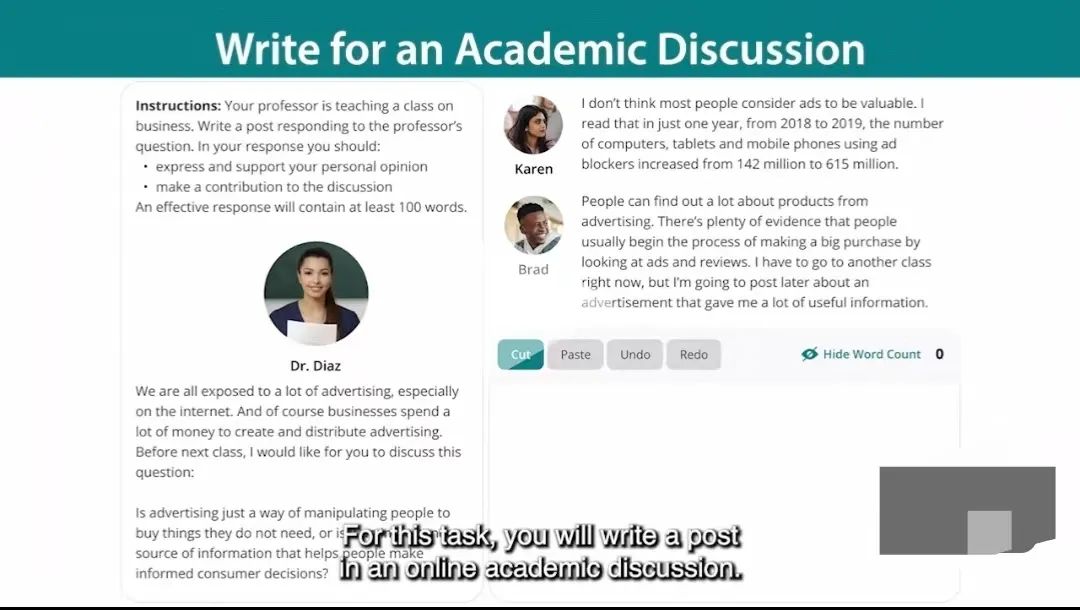
Instructions要求:
Your professor is teaching a class on business. Write a post respoinding to the professor's question. In your response you should:
express and support your personal opinion
make a contribution to the discussion
An effective response will contain at least 100 words.
第一点:express and support your personal opinion
字面翻译:要选择自己的立场,要支撑自己的观点。
解读:这里的重点是两方面。一是要清晰阐明自己立场,不可含含糊糊,似是而非。二是要给出证据或道理,解释自己的观点。表明自己不是随心所欲,胡言乱语,而是经过思考,有理有据地在阐述观点,
第二点:make a contribution to the discussion
字面翻译:为讨论做出贡献
解读:这里暗示是不要和前面已给的post的内容重合,要有自己独特的想法。这也是告知学生,在真实课堂上,我们也鼓励学生建立自己独有的思想,不要人云亦云。
现在,我们看writing task的整体要求:
1. respond to or build on ideas expressed in other text
回答问题或以此为基础表达观点
2. clearly state or elaborate on a position or argument
清晰表达或阐述立场或论点
3. show accurate and meaningful use of a range of grammatical structures and vocabulary in the academic context
在学术语境中,体现准确且可以有意义的一系列语法结构和词汇
简单说,分为两点。一是:内容上要有自己清晰的观点。二是:语言上要能体现用词精准,句式多样。前提为学术语境。
下面是笔者对托福改革后的写作试题的示例
Advertising, in my opinion, is not a way of manipulating people to buy products they do not need. The purpose of advertising for a company is, no doubt, to inform the audience that the company has a new product in the market, to expand its market, or to increase its sales. So a customer’s decision whether to buy it or not is ultimately a very personal one. When things go wrong, the buyers themselves shoud take the responsibility and reflect about their actions: do we have a meticulous thought before making the decision? Take an iPhone user as an example, if the user suddenly cannot see things clearly and blames it’s all the fault of Apple company, isn’t it unreasonable? Likewise, we cannot make the company that advertises its items to be the scapegoat if we make a wrong decision. Instead, advertising is a vital source of information that helps people make informed decisions; it is beneficial to buyers. An advertising campaign advertises the latest items to the buyers, allowing them to meet their needs and saving their time when they pursue information for their needed products. For instance, you do want to buy a new phone with good camera function and you see on TV that Huawei advertises its latest model and informs the audience of its best advantage in terms of photographing. In this case, advertising allows the consumption of wise transactions by offering details on the relative feature. Consumers then get what they want thanks to advertising.





